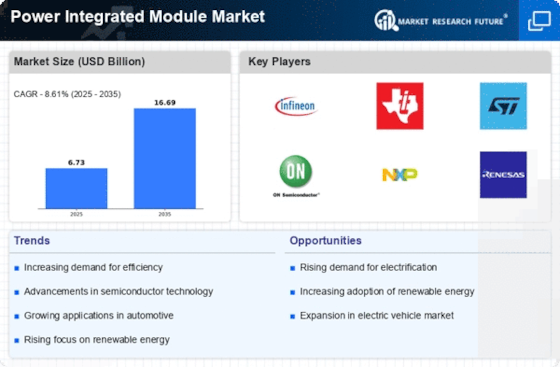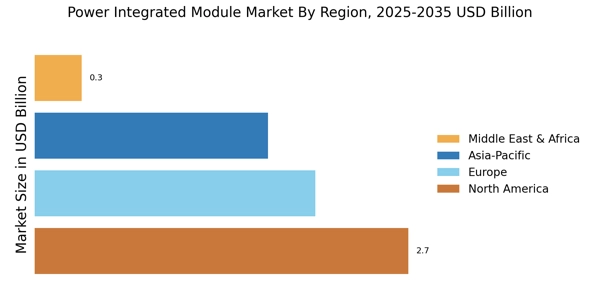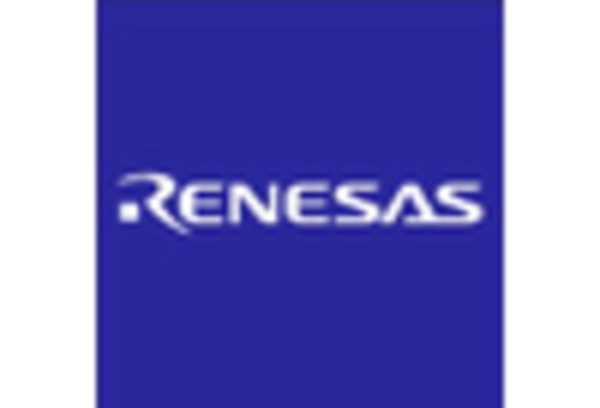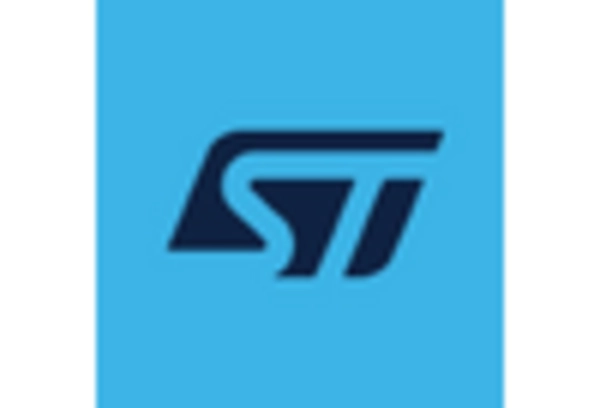Growth in Renewable Energy Sources
The Power Integrated Module Market is significantly influenced by the growth in renewable energy sources. As countries strive to meet sustainability goals, investments in solar, wind, and other renewable energy technologies are increasing. This shift necessitates the use of power integrated modules to efficiently convert and manage energy from these sources. For instance, the solar energy market is expected to grow at a compound annual growth rate of over 20% through 2027. Such growth indicates a rising demand for power integrated modules that can handle the unique challenges posed by renewable energy systems, thus propelling the Power Integrated Module Market forward.
Increasing Adoption of Smart Grids
The Power Integrated Module Market is experiencing a notable surge due to the increasing adoption of smart grid technologies. Smart grids enhance the efficiency and reliability of electricity distribution, necessitating advanced power management solutions. As utilities invest in modernizing their infrastructure, the demand for power integrated modules, which facilitate better energy management and distribution, is expected to rise. Reports indicate that the smart grid market is projected to reach a valuation of over 100 billion dollars by 2026, thereby driving the need for innovative power integrated modules. This trend suggests that the Power Integrated Module Market will likely benefit from the integration of these technologies, as they require sophisticated power management systems to optimize performance.
Demand for Energy Efficiency Solutions
The Power Integrated Module Market is propelled by the growing demand for energy efficiency solutions across various sectors. Industries are increasingly seeking ways to reduce energy consumption and operational costs, leading to a heightened interest in power integrated modules that optimize energy use. The Power Integrated Module Market is projected to reach approximately 500 billion dollars by 2027, reflecting a robust trend towards energy-saving technologies. This demand is likely to drive innovation within the Power Integrated Module Market, as manufacturers develop more efficient and compact solutions to meet the needs of energy-conscious consumers and businesses.
Regulatory Support for Energy Transition
The Power Integrated Module Market is also influenced by regulatory support aimed at facilitating the energy transition. Governments worldwide are implementing policies and incentives to promote the adoption of clean energy technologies and improve energy efficiency. Such regulations often encourage the use of power integrated modules in various applications, from industrial to residential sectors. For example, initiatives aimed at reducing carbon emissions are likely to drive investments in power integrated modules that support renewable energy integration. This regulatory landscape suggests a promising outlook for the Power Integrated Module Market, as it aligns with global efforts to achieve sustainability and energy security.
Technological Advancements in Power Electronics
The Power Integrated Module Market is benefiting from rapid technological advancements in power electronics. Innovations such as wide bandgap semiconductors and advanced thermal management techniques are enhancing the performance and efficiency of power integrated modules. These advancements enable the development of smaller, lighter, and more efficient modules, which are essential for applications in electric vehicles and renewable energy systems. The power electronics market is anticipated to grow significantly, with estimates suggesting a value exceeding 40 billion dollars by 2025. This growth indicates a favorable environment for the Power Integrated Module Market, as it aligns with the demand for high-performance power solutions.














